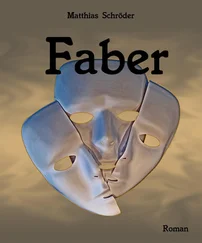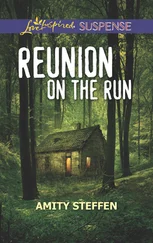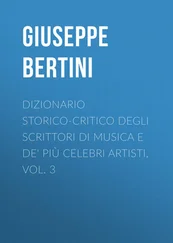I sigh and get up. I lie down on the mattress and put my forearm over my eyes. My legs, the mattress, everything is swathed in the same disposable, gridded material. The sheets are real and you could call them soft.
My friend’s voice floats down to me again through the vents. “What I wonder about is this — do you miss it, Kennedy? I mean, your made-up life.”
I almost laugh. Do I? Do I miss Twelve Hills? Do I miss my made-up mother and my made-up father? Do I miss even the unsubstantiated connection to a famous family?
I had imagined it so well. It got to the point that I could see myself as a child, digging the sugar-fine sand outside our cape, or being read to by my favorite teacher, or walking flanked by the wide asses of my nannies. These visions were so sturdy that if I looked around in my mind, and panned the scene, it would spread itself out for me infinitely — not shallowly, infinitely — and if you had asked me what was beyond, what could be seen, well, I could tell you. To the west were the dunes. To the north, the salt marsh where I gathered sea lettuce. And there, jutting into the ocean, the inoperable lighthouse on whose philanthropic restoration committee my own mother served.
I guess I needed a life that I could revise. If I had just accepted the one life, my first life, I would have honored its limits. I would have lived quietly, hardly even dreaming. I would have tried to convince myself that a sad and quiet life is adequate. Instead, I dreamt. I decorated entire rooms of my past with the pleasures I salvaged elsewhere. Even falling in love with you, Laura— especially falling in love with you, and feeling so changed… Love was my counterargument. Suddenly there were Christmas parties all over Twelve Hills, and well-loved women in silk dresses, and boys nursing crushes on other boys’ mothers, and soft rugs for the babies, and brotherhood for the men. My God, it sounds sentimental when I put it that way, but that’s what my second life did for me.
And pain. Even pain. It’s no good if it’s anonymous, monolithic, genocidal. The pain in my made-up life was boy-sized pain. And so it was better , because I could stand it. I no longer had to be a partial suicide, living only half a life, or less — allowing only the pleasant moments, mild, unthreatening — the small minority. I no longer had to be half alive. A partial suicide like my father.
My eyes shut, he walks blindly into the kitchen again, hands out, searching the air for the door of that little half-fridge that we always kept half-empty. Vater. I tell him to go lie down. I’ll bring it to you , I say.
If we could know , if we could be warned, we could claim all our scattered properties before death forecloses. Have I made it sound like I tried? Here’s a memory:
1994. A Sunday. I’m driving southeast in a borrowed car. It’s a Pontiac Firebird in Collector Yellow with a seriously awesome sound system, and it’s just accepted an Aerosmith tape into its deck in a way that feels distinctly sultry to me. I’m twenty-six, beating time to the song on the steering wheel. I’ve just crossed the Massachusetts border and have taken the long route across the state via the Mohawk Trail, a road I like for the view atop Mount Greylock and for the knickknack store that sits there like a Buddhist temple buffeted by crosswinds.
I’m late. I told Dad I’d be in Dorchester days ago. He is to have cataract surgery on both eyes on Monday, and he needs my help settling some affairs. While the delay itself is forgivable — I don’t remember the reason for it — driving the scenic route along the Mohawk Trail is not. Yet I drive without hurry. I have not seen my father since the degeneration of his eyesight began, and when I arrive I will be woefully unprepared for his groping debility. I have a girlfriend — not the wife, not The One — but a much less serious girl named Angela. It’s Angela’s Firebird I’m driving. Angela was my study mate in Spanish, senior year at Mune. She tracked me for several years after graduation until I relented and went to bed with her, and at this stage we are spending a lot of time together, mostly naked. I am thinking about this — about Angela — as I descend into the Pioneer Valley, barely noticing the lurid foliage on either side of Route 91. Come back soon , Angela had begged that morning in bed. Promise you’ll come back soon.
I do not love Angela. I have told her this in an effort to head off future indemnity. She says she’s OK with that. She says love is “just a word.” In my limited experience, this seems sound. I do not love Angela, but as I drive the Mohawk Trail, I do miss her. She is my main squeeze. She is my working thesis. With her, I associate all that I love about Albany, which is that I have absolutely no familial, cultural, or philosophical connection to it. I’m bound to it only by the exercise of my own free will.
The moment I enter the apartment on Savin Hill Road, Dad sits upright and says, in English, “Thank you for coming.” Although he is fully dressed, he seems to have just awoken from a long sleep. As ever, I am not prepared for his civility, how he is calm to the point of frigid, nor am I prepared for how frustrated it makes me that he still sleeps on the couch, instead of in the single bedroom I have long vacated. I feel the need for air, the need to sigh repeatedly, as well as the telltale muscular fatigue I suffer from long after I’ve finished climbing those three flights of stairs. Just moments ago, I barely survived the foyer of the building, against whose plaster I used to rest my secondhand dirt bike. Why does the foyer hurt me? Why does the memory of the dirt bike hurt me? I don’t know. I still don’t know. Sliding my key from the lock, I turn and offer Dad an encouraging smile. He stares up from the couch uncertainly. I realize I am smiling at a blind man.
“Ah,” he says, and pats the surface of the TV table. He picks up something that looks like a welding visor and places it over his glasses. He finds me through magnified eyes.
“ Now I see you,” he says.
I walk over and clasp his shoulder, suddenly moved. “Hi, Dad. I’m here.”
“Sorry for how I look,” he says.
“What?” I say. “You look fine.”
“I cannot see.”
“Well, you can see me.”
“I can see you hardly.”
“You’re going to be fine .”
He gives my wrist a squeeze. “My son. You came.”
My throat constricts. That’s right — I remember now — the surgery carries a small risk of permanent blindness. He is afraid. But instead of offering him reassurance, I feel my stomach drop, and a child’s wail begins to climb me from the inside. God no, I think. You cannot cry, you shit. If you start to cry, you will never forgive yourself. You will die of shame. Trottel. Idiot . Weakling. That’s when I make a deal. I say, Dear God: If you help me make it out of Dorchester without crying, I will never set foot in this place again. I will totally disappear.
The wail stops at the top of my throat and sinks back into silence.
The surgery goes well. At the end of the day, I drive Dad back to the apartment. I lead him up the steps by the elbow. The upper half of his face is bandaged by gauze. I disregard the policies of parking in the shared lot and leave the car closest to the entrance, blocking someone in. I prop Dad on the couch with some extra pillows. He asks for a beer. I go to the old half fridge, get a beer, pop off the bottle cap, and guide the misting nozzle to his mouth. We sit together as he sips, and for a moment, I almost enjoy the familiar sensation of his silence.
“Miscommunication,” Dad says, swallowing. “This is the English word.”
Читать дальше












